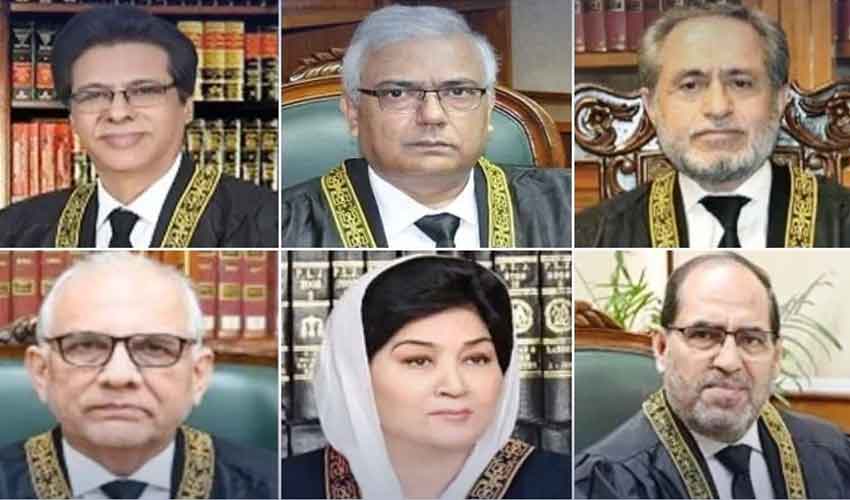In a significant development, the Supreme Court’s constitutional bench has dismissed the petitions against the Practice and Procedure Ordinance. Heading the bench, Justice Ameen-ud-Din Khan stated that the ordinance has now expired. Justice Muhammad Ali Mazhar further elaborated that the Parliament has already legislated on this matter following the ordinance’s expiration.
The petitioner’s lawyer requested the nullification of the committee’s actions under the ordinance, but Justice Jamal Mandokhail clarified that once a law is enacted, the ordinance naturally ceases to exist. Additionally, Justice Muhammad Ali Mazhar highlighted that the committee formed under the ordinance is now dissolved, and its decisions are protected as past and closed transactions.
Justice Jamal Mandokhail affirmed that the President of Pakistan is constitutionally empowered to issue ordinances.
Pakistan Tehreek-e-Insaf (PTI) Chairman Barrister Gohar Ali Khan had challenged the ordinance, with Afrasiab Khattak, Ihtesham-ul-Haq, and Akmal Bari also filing petitions. The Supreme Court Amendment Practice and Procedure Ordinance 2024 took effect on September 20, following President Asif Zardari’s signature.
Prime Minister Shehbaz Sharif and the federal cabinet had previously approved this amendment. Information Minister Attaullah Tarar emphasized that the ordinance aims to promote public interest and transparency within the judiciary. Under Article 184(3), the right to appeal Supreme Court decisions has also been granted.
According to the ordinance, a committee consisting of the Chief Justice of Pakistan, the senior-most Supreme Court judge, and a judge nominated by the Chief Justice will now schedule cases. Previously, a three-member bench comprising the Chief Justice and the two senior-most judges performed this role.
With the enforcement of the Supreme Court Practice and Procedure Ordinance 2024, Justice Ameen-ud-Din Khan has replaced Justice Muneeb Akhtar in the three-member judges committee.
Chief Justice Qazi Faez Isa nominated Justice Ameen-ud-Din Khan, the fifth senior-most judge, to the committee through an office order issued by the Supreme Court Registrar.
Understanding the Practice and Procedure Ordinance
The ordinance specifies that the bench will prioritize cases based on public importance and fundamental human rights, ensuring that each case is heard in order, or reasons are provided for any deviations.
The amendment ordinance mandates that all cases and appeals be recorded and transcribed, with these records made available to the public. The Practice and Procedure Act committee, comprising the Chief Justice, the senior-most judge, and a judge nominated by the Chief Justice, will schedule cases.
Sections 7A and 7B have been added to the Practice and Procedure Act, requiring the bench to provide reasons for public interest before hearings. Cases filed earlier will be heard first, and any deviation from this order must be justified.
This landmark decision reinforces the structure and transparency of judicial proceedings in Pakistan, aligning with the aims of the Practice and Procedure Ordinance to uphold justice and public trust.

